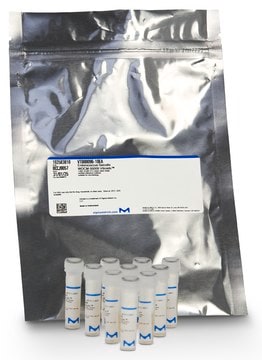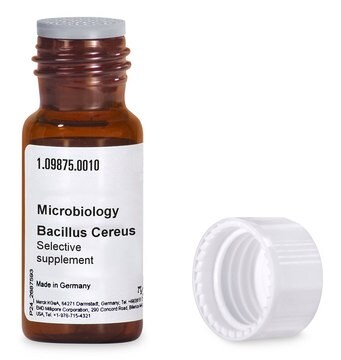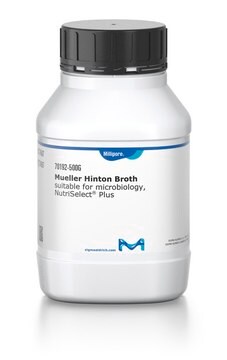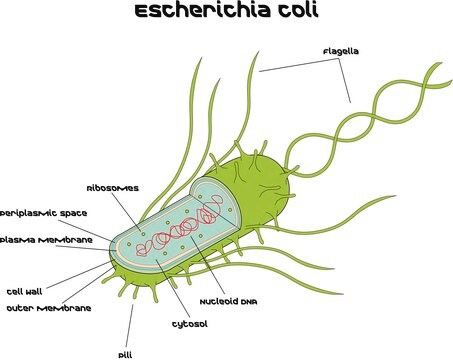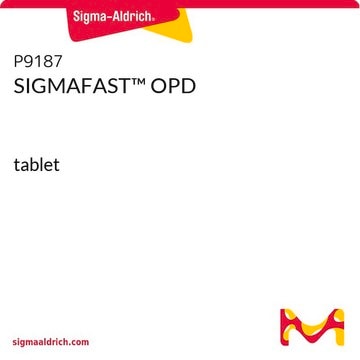1.10649
Bacillus subtilis (BGA) spore suspension
Indicator organism for the detection of antimicrobial inhibitors.
Synonym(s):
B. subtilis, Biological indicators
Sign Into View Organizational & Contract Pricing
All Photos(2)
About This Item
UNSPSC Code:
41116130
NACRES:
NA.84
Recommended Products
Quality Level
form
liquid
technique(s)
microbiological culture: suitable
density
1 g/cm3
application(s)
detection
food and beverages
microbiology
storage temp.
2-8°C
suitability
Bacillus spp.
General description
Bacillus subtilis (BGA) spore suspension is used for the detection of antimicrobial inhibitors. The antimicrobial inhibitors test is conducted as an agar diffusion test. The spores of Bacillus subtilis (BGA) are the test organisms. The inhibitors inhibit the growth of the test bacteria. The inhibition of growth is indicated by a zone of inhibition measured between the edge of the piece of tissue and the limit of growth. Complete inhibition of growth with an inhibition zone of a minimum of 2 mm can be regarded as a positive result, and an inhibition zone of 1 to 2 mm as a dubious result, if the parallel controls have inhibition zones of approx. 6 mm.
Storage Class Code
12 - Non Combustible Liquids
WGK
WGK 1
Flash Point(F)
Not applicable
Flash Point(C)
Not applicable
Certificates of Analysis (COA)
Search for Certificates of Analysis (COA) by entering the products Lot/Batch Number. Lot and Batch Numbers can be found on a product’s label following the words ‘Lot’ or ‘Batch’.
Already Own This Product?
Find documentation for the products that you have recently purchased in the Document Library.
Customers Also Viewed
Our team of scientists has experience in all areas of research including Life Science, Material Science, Chemical Synthesis, Chromatography, Analytical and many others.
Contact Technical Service



